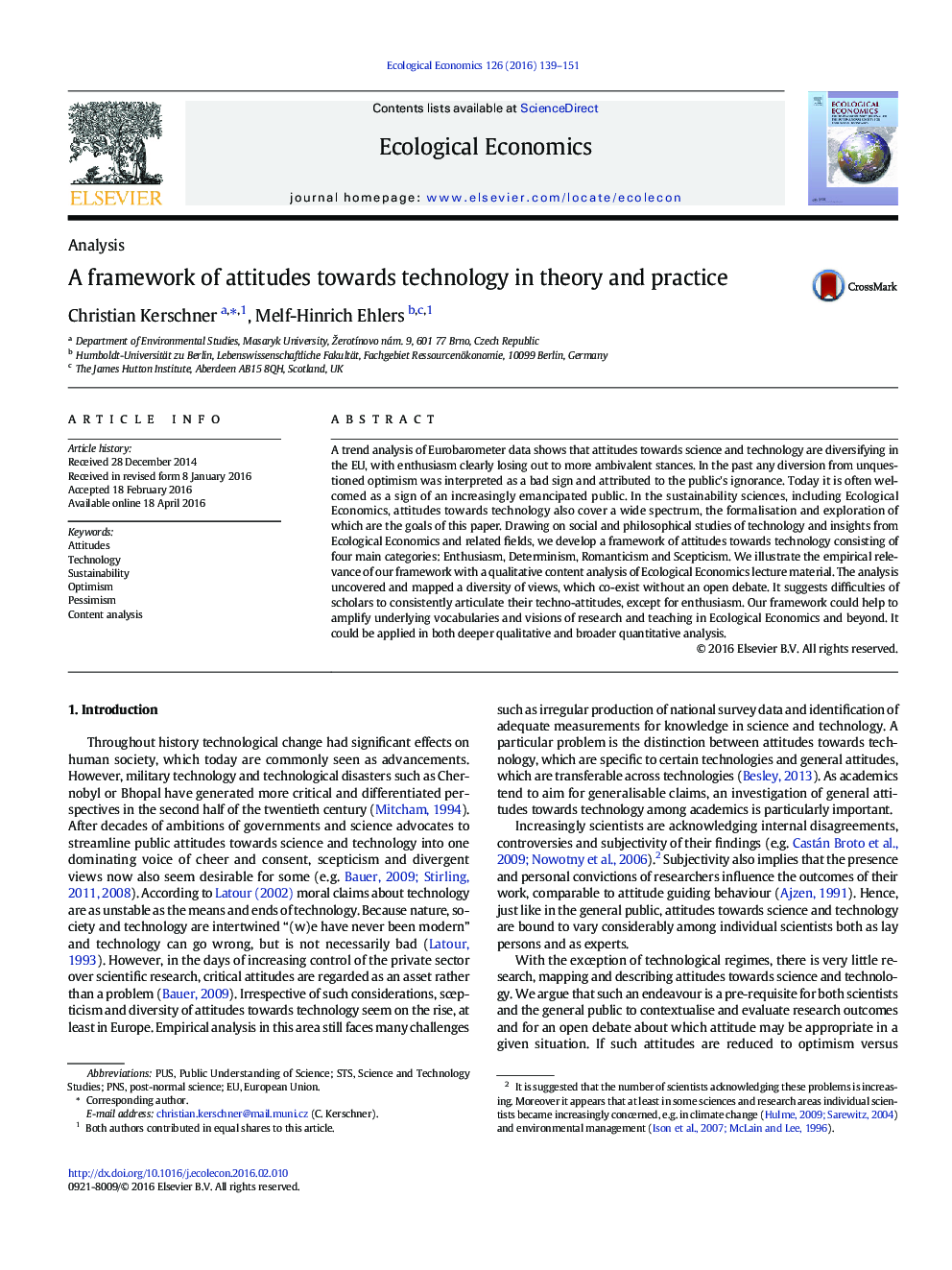| Article ID | Journal | Published Year | Pages | File Type |
|---|---|---|---|---|
| 5049153 | Ecological Economics | 2016 | 13 Pages |
â¢Surveys show a diversification of public views of technology away from optimism.â¢We present a framework of attitudes towards technology.â¢Core attitudes are derived from social and philosophical studies of technology.â¢The framework is used in a content analysis of ecological economics lecture material.â¢Our framework can facilitate an open debate over techno-attitudes in public and science.
A trend analysis of Eurobarometer data shows that attitudes towards science and technology are diversifying in the EU, with enthusiasm clearly losing out to more ambivalent stances. In the past any diversion from unquestioned optimism was interpreted as a bad sign and attributed to the public's ignorance. Today it is often welcomed as a sign of an increasingly emancipated public. In the sustainability sciences, including Ecological Economics, attitudes towards technology also cover a wide spectrum, the formalisation and exploration of which are the goals of this paper. Drawing on social and philosophical studies of technology and insights from Ecological Economics and related fields, we develop a framework of attitudes towards technology consisting of four main categories: Enthusiasm, Determinism, Romanticism and Scepticism. We illustrate the empirical relevance of our framework with a qualitative content analysis of Ecological Economics lecture material. The analysis uncovered and mapped a diversity of views, which co-exist without an open debate. It suggests difficulties of scholars to consistently articulate their techno-attitudes, except for enthusiasm. Our framework could help to amplify underlying vocabularies and visions of research and teaching in Ecological Economics and beyond. It could be applied in both deeper qualitative and broader quantitative analysis.
Graphical AbstractDownload high-res image (302KB)Download full-size image
